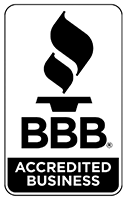Kentucky Zantac Lawsuit Attorneys
The U.S. Food and Drug Administration (FDA) recently requested that all drug makers of prescription and over-the-counter Ranitidine/Zantac drugs withdraw them from the market. The decision came as a result of an ongoing investigation relating to a contaminant referred to as N-Nitrosodimethylamine (NDMA). The investigation discovered that if NDMA was present in Ranitidine/Zantac and the drug was stored at higher than room temperatures, then the drug could cause various forms of cancer.
The public was warned in 2019 of the potential risks of the presence of NDMA in Ranitidine/Zantac. Recently, new testing by the FDA confirmed that NDMA levels increase in this drug even under normal storage conditions. At higher temperatures, it is even more likely. Further information revealed by third-party labs also showed that the older Ranitidine products the higher the levels of NDMA.
The FDA is advising consumers taking Ranitidine/Zantac to cease taking any liquid or pills and dispose of them. It is strongly suggested that patients on this medication speak with their health care providers to determine what other options may be available. Similar drugs like Pepcid, Tagamet, Nexium, Prevacid or Prilosec have no NDMA present in them.
To safely dispose of Ranitidine/Zantac liquid or pills read the detailed disposal instructions on the package insert or in the medication guide. During the COVID-19 pandemic, it is advised to not take drugs to a take-back location.
What Is Ranitidine/Zantac
Ranitidine is the active ingredient in Zantac and is often used to treat heartburn and acid indigestion. Consumers could also buy it as an anti-acid over-the-counter (OTC) drug and with a prescription. The drug manufacturers behind Ranitidine are Pfizer, Sanofi, GlaxoSmithKline and Boehringer Ingelheim Pharmaceuticals.
Zantac is a popular drug, as it produces results quickly, sometimes within 30 minutes and may last as long as 12 hours. The prescription strength Ranitidine is used to treat ulcers, gastric esophageal reflux (GERD) and erosive esophagitis. It should not be taken with atazanavir (for HIV), warfarin or ketoconazole (for fungal skin infections).
Zantac can be taken in liquid form, via an intravenous injection, or as a pill. Ranitidine is a class of antacid drugs known as H2 blockers or histamine-2 receptor angonists. Zantac works by inhibiting the proton pump, reducing the amount of stomach acid. Once reduced, the symptoms that accompany gastric ulcers, heartburn and GERD are reduced.
Until recently, Zantac had few known side effects. The most common side effects of the drug, when taken alone (without NDMA) are:
- Headache
- Diarrhea
- Nausea
- Vomiting
- Constipation
- Stomach pain
However, Zantac should not be taken in combination with other drugs. It is recommended to not take Zantac with the following drugs:
- Atazanavir
- Delavirdine
- Gefitinib
- Glipizide
- Ketoconazole
- Midazolam
- Procainamide
- Triazolam
- Warfarin
Why Ranitidine/Zantac was Taken off the Market
In 2019, an online Connecticut pharmacy, told the U.S. Food and Drug Administration it had found NDMA, in some batches of Zantac and its generic, Ranitidine. NDMA is classified by the FDA as a probable human carcinogen.
The pharmacy said extremely high levels of the chemical were found in every lot tested from multiple manufacturers. One Zantac pill may contain amounts of NDMA several thousand times higher than FDA limits.
Retailers took the prescription and over-the-counter Zantac and 14 generic manufacturers off the shelves. One of Zantac’s makers, Sanofi, also recalled the medication in the United States.
In January 2020, Emery Pharma, indicated that extended heat exposure increases NDMA to unsafe levels in Ranitidine.
In April 2020, the FDA asked Zantac and generic Zantac drug makers to withdraw all prescription and OTC versions of the drug from the market. New testing indicated levels of NDMA increase in Ranitidine over time if exposed to heat.
Ranitidine/Zantac Lawsuits
On February 6, 2020, federal judges transferred 15 Zantac-related lawsuits to a South Florida court for multidistrict litigation. There are at least 21 districts nationwide that have Zantac cases pending.
Consumers allege Ranitidine is contaminated with carcinogenic NDMA. Lawsuits list liver, stomach and bladder cancer among the main injuries. While Zantac may cause other side effects, those side effects are not part of the lawsuit claims.
The lawsuits also allege that Ranitidine’s manufacturers, sellers and distributors, knew the medication exposed consumers to NDMA, but hid those dangers. Zantac-related suits allege NDMA is inherent to the drug’s molecular structure, and not related to its manufacturing process.
Initial trials, referred to as bellwether trials, help predict how other lawsuits may fare. If a drug company loses most of the initial trials, they may reach a global settlement to shorten time spent in court.
Drug Recall Lawsuits
Have you or a loved one suffered harmful side effects from taking Zantac/Ranitidine with the cancer-causing chemical NDMA? At Hessig & Pohl we understand how frightening it is to find out that a trusted drug is harmful to your health. The team of attorneys at Hessig & Pohl is ready to help you through the legal process to obtain the compensation you need and deserve.
Once you decide to take legal action as a response to this drug recall, our law firm will guide you. Drug recall lawsuits are complex. A Zantac/Ranitidine lawsuit may allege one or more of the following:
- Manufacturing defects
- Drug manufacturer negligence
- Design defects
- Alleging companies being sued knew their products were defective but sold them anyway making the company liable for the harm done
- Negligence by the company marketing the drug
- Failing to warn consumers (and doctors) of known risks
- Breach of implied warranty on the safety of the drug
How We Can Help
If you believe Zantac/Ranitidine has injured you, seek an experienced attorney to find out your legal rights and how to file a lawsuit seeking compensation. At Hessig & Pohl we take the time to walk you through your legal rights, explain how a lawsuit like this works and what compensation you may expect to recover.
Call Hessig & Pohl as soon as possible. We act promptly, with you as our partner, and make a difference in the outcome of your case. The attorneys at Hessig & Pohl are highly experienced personal injury lawyers who do not stop until you get justice. Call us today at (502) 777-1111
Marty fought for me when the insurance company denied my claim. We sued and got the insurance limits.






